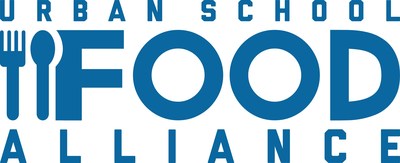Subject: CHI
Urban School Food Alliance Responds To USDA Changes To School Nutrition Standards
NEW YORK, Jan. 27, 2020 /PRNewswire/ -- The Urban School Food Alliance (Alliance), a coalition of the largest school districts in the United States, responds to the recent United States Department of Agriculture (USDA) changes to school nutrition standards. The Alliance consists of a group of school food professionals whose main mission is to provide their 3.3 million students with delicious, high quality healthy meals, while incorporating sound environmental practices.

RESPONSE TO RECENT USDA CHANGES TO SCHOOL NUTRITION STANDARDS
The Urban School Food Alliance will continue to support research-based nutrition policy and guidelines that boost student achievement and educate young people about healthy choices and lifestyles. We are committed to serving students healthy, flavorful meals with the use of local products as often as possible. The members of the Alliance, like thousands of districts across the country, have worked hard to gain student approval of menu items that meet the strong nutrition standards in federal regulations.
While doing this important work, we do welcome discussion with USDA as to how we can reduce the redundancy of administrative burden, reduce the amount of food waste, and alter some of the restrictions we see as unnecessary. A good example of this is the proposal (in the USDA School Meals Reforms announcement) to allow the addition of fresh fruits and vegetables to flavor water made available to students. Who doesn't like water flavored with cucumber slices or freshly cut strawberries? At this time, however, fresh cucumbers and/or strawberries may not be added for enhanced flavoring. The prohibition on adding fresh fruits/vegetables to flavor water for students seems like an unnecessary burden that is removed in the proposal. Likewise, we agree with making a meat/meat alternate easily available for breakfast rather than all of the grains that are now required. We know that protein adds satiety to the meal, gives energy for a longer period of time, and that by adding protein, the menu may be lower in sugar. These are just two examples of items in the School Meals Reforms proposal that make sense.
In addition, the proposed reduction of the administrative burden regarding the administrative review (an audit which currently occurs every three years) will allow school food service professionals more time to enhance their programs and will allow state agency oversight staff more time for technical assistance to districts still struggling to meet federal standards.
While our early review of the proposals finds a number of suggestions that make sense, we are committed to a deeper analysis, particularly of the food and menu-related proposals. Thus, there will be more in-depth comment on the USDA's School Meals Reforms on our website in the coming weeks. We encourage all of our member districts to comment on the proposals through the federal comment procedure available for the next 60 days.
The members of the Urban School Food Alliance believe that it is important for all interested parties to read the entire proposal and then comment on items of concern rather than making quick judgements based on sensational headlines. School districts that invest in the education and training of their school nutrition staff and invest in the wellbeing of their students will continue to offer healthy, appealing meals to students.
About Urban School Food Alliance
The Urban School Food Alliance was created by school food professionals in 2012 to address the unique needs of the nation's largest school districts. The nonprofit group allows the districts to share best practices and leverage their purchasing power to continue to drive quality up and costs down while incorporating sound environmental practices. New York, Los Angeles, Chicago, Dallas, Miami-Dade, Orange County (Orlando), Broward County (Fort Lauderdale), Philadelphia, Baltimore and Boston together offer service to nearly 3.3 million children daily. This translates to more than 584 million meals a year. The coalition aims to ensure that all public school students across the nation receive healthy, nutritious meals through socially responsible practices. To learn more about the Urban School Food Alliance or to support its work, please visit www.urbanschoolfoodalliance.org.
SOURCE Urban School Food Alliance
These press releases may also interest you
|
News published on and distributed by:



